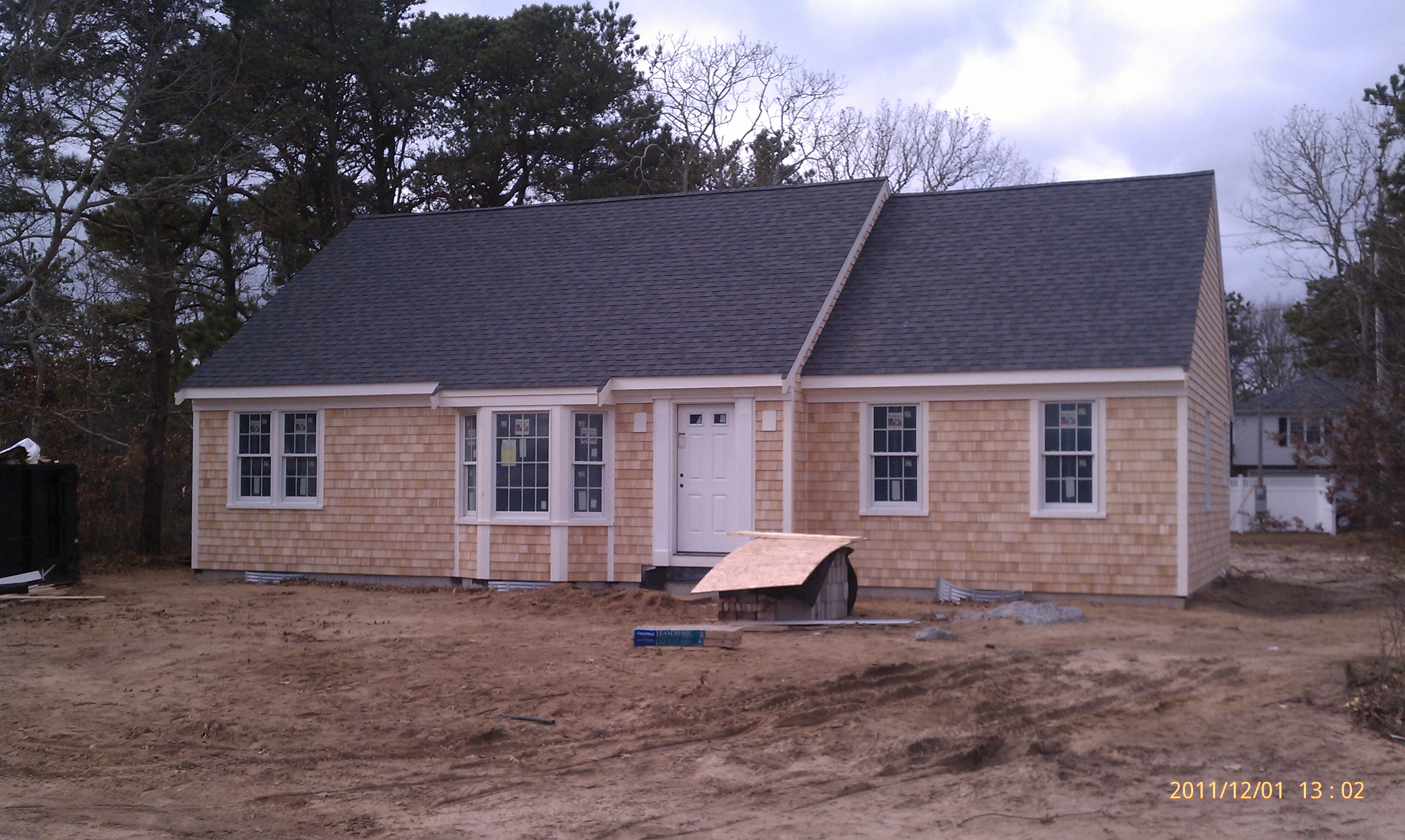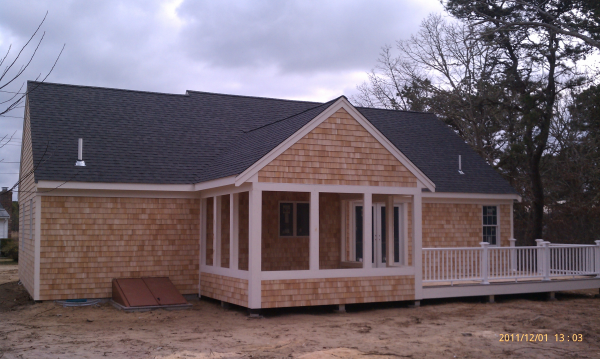Since it is a very rainy and windy day here on Cape Cod, we felt it would be appropriate to discuss one of our least favorite subjects... controlling water and leaks. Whether renovating or building a new home, controlling water is probably one of the most important items to consider. Really there are two areas that we focus on here at REEF, first, the building envelope, i.e. roofing, siding, doors and windows etc., and second, surface water, i.e. site drainage, foundation waterproofing etc. Here are some tips that we have found very helpful over the years
Building Envelope:
- Building wrap / vapor barrier: Us a high quality building wrap like Typar and ensure it is installe properly at all siding areas. Leaks coming through siding are very hard to track down, and can cause expensive damage.
- Windows: Properly installed windows are important, but we have found that properly installed flexible flashing like Vycor or Typar tape are cheap and effective insurance against window leaks. They provide a virtually impenetrable seal around the windows.
- Roofing: Proper installation of felt paper and roof shingles is critical, but more important is proper application of a self-adhering ice and water shield at critical areas. Roof edges, valleys, cheek walls, and low slope roofs should have an ice and water shield installed (3' wide). Given the cost of this material and the speed with which it can be installed, it is a great way to prevent and probably eliminate long term problems.
- Doors: Doors generall become a problem when exposed to wind-driven rain. The best way we have found to eliminate leaks is a properly installed storm door, especially in coastal areas.
Surface Water / Site Drainage:
- Assess soil conditions: We are fortunate to have very sandy and well draining soils here on Cape Cod. However, there are areas of the Cape that have substantial amounts of clay. An engineer or experienced builder / excavator can make a very accurat assessment of the soil conditions.
- Foundation Waterproofing: Current building codes still only require "dampproofing" on a foundation wall, which is the black tar typically seen on a new foundation. This product, however, does nothing to stop water from penetrating the concrete walls. If poor soil conditions exist, invest in a true foundation waterproofing such as Mar-flex which can withstand hydrostatic pressure.
- Foundation Drainage: Every foundation in areas of poor soil conditions should have a perimeter drain at the footing that runs to a properly-sized drainage structure, an engineer can help in this design. The downspouts for the house should also be run through a separate drainage system to prevent overloading the perimiter footing drain.
- Site Grading: This is the most critical part of managing water on any site, and it is all contigent on how and where the house was located on the site. There should be a slope away from the house at all times, and the water that runs away from the house also needs to have somewhere to go. Recently, the use of low vegetated swales, and retention areas has become increasingly popular, and provides some nice features that can be landscaped to enhance the look of the yard, while still serving an important purpose.
The bottom line is this - if you are building a home or undergoing a renovation project, handling water is a key component, and we have found a team approach is best. A competent builder, designer, and engineering team can head off a lot of these problems early on. One thing we have learned over time is that water problems are long term, and expensive to fix, so a little planning and preparation goes a long way. If you are thinking of building a new home or renovating and have questions feel free to CONTACT US





